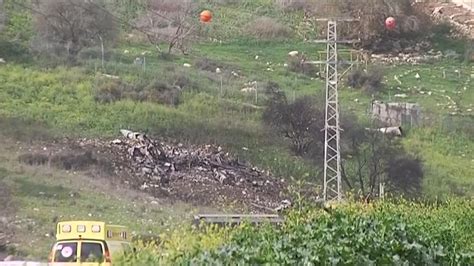The tension between Israel and Turkey has escalated to new heights as both countries vie for influence in war-torn Syria. The recent Israeli air strikes on Syrian military targets have not only intensified the conflict within Syria but have also posed a significant challenge to Turkey’s strategic interests in the region.
Israel’s repeated airstrikes on Syrian bases, particularly following the fall of Assad, reflect its determination to maintain its security and thwart any perceived threats emanating from across its borders. These strikes serve as a clear message not just to Syria but also to Turkey, signaling Israel’s readiness to protect its interests at all costs.
Caught in the Crossfire
The recent bombing of military installations by Israel, including key airports like Hama and T4 near Homs, underscores the complex web of alliances and rivalries that define the current geopolitical landscape in the Middle East. While these strikes were ostensibly directed at Syrian targets, their underlying motive was aimed at challenging Turkey’s growing presence and influence in Syria.
Syria, still reeling from years of civil unrest and political upheaval, finds itself inadvertently entangled in a power struggle between two regional heavyweights. The delicate balance of power that once defined Syria’s relations with its neighbors has been disrupted by external interventions and conflicting agendas.
A Delicate Balancing Act
As Ankara seeks to negotiate a joint defense pact with Syria’s interim government led by Ahmed al-Sharaa, Israel perceives this move as a threat to its own security considerations. The mounting tensions between Turkey and Israel have further complicated an already volatile situation in Syria, adding another layer of uncertainty to the region’s future.
The rhetoric exchanged between Israeli and Turkish officials underscores the high stakes involved. Accusations of destabilization, terrorism sponsorship, and regional insecurity are being volleyed back and forth, painting a grim picture of escalating hostilities that could have far-reaching consequences beyond Syria’s borders.
The Human Cost
Amidst these geopolitical maneuvers lie real human tragedies – lives lost, families shattered, and communities torn apart by violence. The casualties resulting from Israeli airstrikes on Syrian soil serve as a stark reminder of the human toll exacted by political brinkmanship and power plays at the highest levels.
The stories emerging from cities like Deraa and Damascus paint a harrowing picture of civilians caught in the crossfire of larger geopolitical machinations. As mosques call for jihad against foreign forces intruding into Syrian territory, ordinary Syrians grapple with fears of an uncertain future marked by conflict and strife.
A Nation Divided
Syria’s internal fault lines – be it sectarian divisions or regional allegiances – are being exploited by external actors for their own strategic gains. The legacy of decades-long repressive rule under the Assad regime has left deep scars on society, making it susceptible to outside interference seeking to advance their agendas through proxy conflicts on Syrian soil.
Ahmed al-Sharaa’s attempts at fostering unity amidst chaos face formidable challenges as remnants of past regimes backed by external powers sow discord within communities long yearning for peace. The fragile fabric holding Syrian society together is fraying under pressure from competing factions vying for dominance over a fractured land.
Looking Ahead
As Israel continues its military interventions in Syria while navigating complex relationships with neighboring powers like Turkey, the fate of Syria hangs precariously in the balance. The aspirations for stability and peace nurtured by Syrians after Assad’s downfall are overshadowed by looming specters of renewed conflict fueled by external actors pursuing divergent goals within Syria’s borders.
In this cauldron of competing interests where alliances shift like desert sands driven by winds unseen but deeply felt on the ground — Syrians find themselves pawns in a larger geopolitical game played out far beyond their control or consent.

